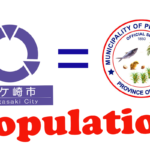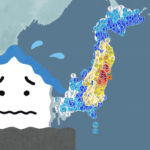
One of the easiest businesses to start in the Philippines is a sari-sari store.
A sari-sari store is a kind of small, privately owned convenience store that sells non-perishable foods, beverages, and daily necessities (detergent and shampoo).
There are so many sari-sari stores in the Philippines that I have no idea how many there are in the country.
The reason why there are so many sari-sari stores is because they can be opened with relatively little cost.
All you need is a place to set up store (either a corner of your house, a small building, or an apartment with space for a sari-sari store), shelves to display your products, a refrigerator, and other fixtures. And the products.
The products sold in the small-scale sari-sari stores are purchased at larger shopping stores and sold at some additional cost.
I often see people in shopping stores with large carts piled high with the same products, and you can assume that they are the managers of the sari-sari store.
At the Sari-sari store, products purchased in this way are sold in small portions, and some of them, such as coffee, detergent, and shampoo, come in single-serving packages.
The reason why small portions of products (coffee, detergent, shampoo, etc.) are sold in the Philippines is because many common people buy what they need on a case-by-case basis.
In Japan, it is cheaper to buy high-capacity items than low-capacity items. This is the same in the Philippines, but since some people cannot buy everything at once, they tend to buy only what they need, even if it is a little more expensive.
It is cheaper to buy things at shopping stores, but the relatively large shopping stores are only located in towns with a certain population, so many people do their daily shopping at the Sari-sari store.
That's why there are sari-sari stores scattered all over the place.
It's easy to open a sari-sari store, but I heard that not many of them stay open for a long time.
Apparently, the reason for this is that many stores close due to lack of profit.
The reason for the lack of profit is poor inventory control and other product management.
Products are used by family members without permission (children eat them).
The sales proceeds are used as a household budget and the working capital is not available. There seems to be an inability to collect accounts receivable, etc.
Think of the sari-sari store as a business, and if you can't manage the revenue, you will be forced to close it.
In order to keep the store open continuously, inventory and sales management should be done.
Keep in mind that sales money is not profit (profit is sales minus costs such as purchase prices, store maintenance costs, and labor costs) and run your business accordingly.
If a family member uses it, they need to be charged for it.
If there is a sari-sari store nearby, it is important to make sure that the products do not overlap as much as possible.
To further differentiate yourself, consider adding services that are tailored to your customers.
For example, like convenience stores in Japan, they provide hot water for cup noodles. You need to make an effort to increase the number of customers visiting your store with a little ingenuity.
Opening hours, closing hours, and regular holidays should be properly displayed so that when customers arrive, they don't find that the store is closed.
The above is common knowledge in Japan, but it does not seem to be strictly enforced in the Philippines.
My wife seems to want to run a sari-sari store when we build a house in the Philippines, so I would like to support her to run it in a Japanese way.









